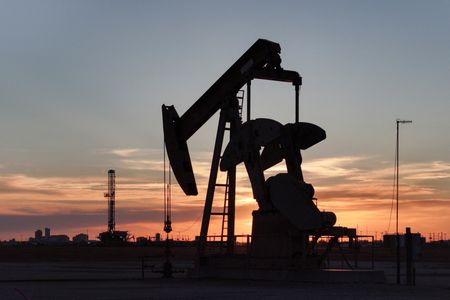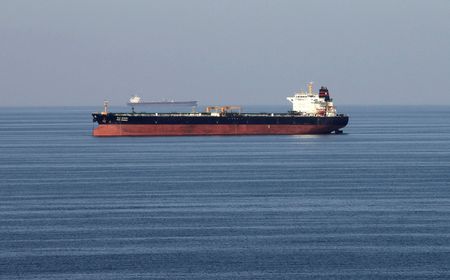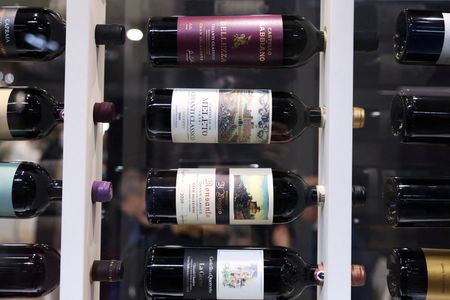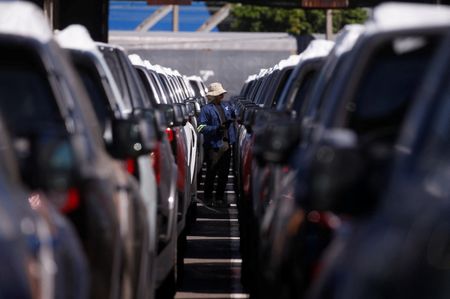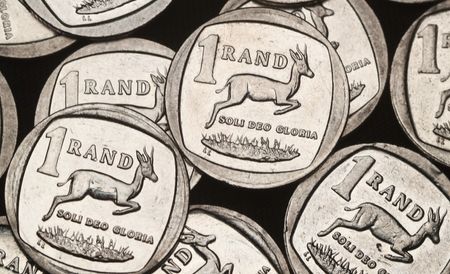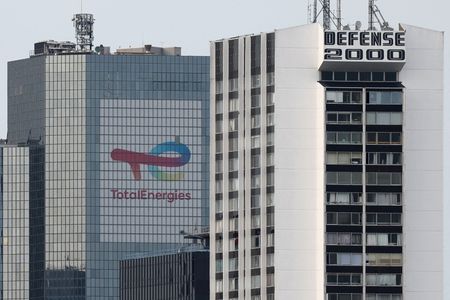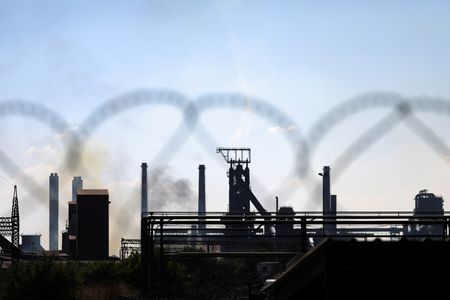(Reuters) -Oil prices fell on Tuesday after U.S. President Donald Trump’s lengthy 50-day deadline for Russia to end the Ukraine war and avoid sanctions eased immediate supply concerns.
Brent crude futures fell 29 cents, or 0.4%, to $68.92 a barrel by 0342 GMT, while U.S. West Texas Intermediate crude futures fell 35 cents, or 0.5%, to $66.63. Both contracts settled more than $1 lower in the previous session.
“Trump’s milder stance on sanctions over Russian oil eased fears of a supply crunch while his tariff plan continues to mount economic pressures,” said Priyanka Sachdeva, senior market analyst at Phillip Nova.
Oil prices had climbed on the news of potential sanctions, but later gave up these gains as the 50-day deadline raised hopes that sanctions could be avoided, and traders dwelled on whether the U.S. would actually impose steep tariffs on countries continuing to trade with Russia.
If Trump does follow through and the proposed sanctions are implemented, “it would drastically change the outlook for the oil market,” analysts at ING said in a note on Tuesday.
“China, India and Turkey are the largest buyers of Russian crude oil. They would need to weigh the benefits of buying discounted Russian crude oil against the cost of their exports to the US,” the ING note said.
Trump announced new weapons for Ukraine on Monday, and had said on Saturday he would impose a 30% tariff on most imports from the European Union and Mexico from August 1, adding to similar warnings for other countries.
Tariffs risk slowing down economic growth, which could sap global fuel demand and drag oil prices lower.
Elsewhere, oil demand is set to stay “very strong” through the third quarter, keeping the market snugly balanced in the near term, the Organization of Petroleum Exporting Countries’ secretary general said, according to a Russian media report.
Goldman Sachs on Monday raised its oil price outlook for the second half of 2025, pointing to potential supply disruptions, shrinking oil inventories in Organisation for Economic Co-operation and Development countries, and production constraints in Russia.
(Reporting by Anjana Anil in Bengaluru and Sudarshan Varadhan in Singapore; Editing by Jamie Freed)

